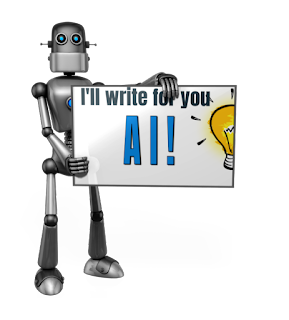1. I asked a question related to a paper I'm working on that is a continuation of work I have done in the past - what improvements can be made to IRC section 197? ChatGPT mostly gave good information including some that sounded like it was pulled from my past work on this. It also gave me some outdated information on section 197 such as: "The rules for determining useful life under section 197 can be complex and ambiguous, leading to disagreements between taxpayers and the IRS." Part of this sounds like pre-197 law. My paper though is calling for a legislative change to make it clear that modern intangibles such as domain names and social media assets fall under section 197.
Commentary: Where you know a good amount about the topic, ChatGPT might be a good way to see if there is anything you are overlooking or clarify something worthwhile to explore further. One item that ChatGPT brought up was whether the de minimis safe harbor should be increased to allow expensing of more intangible expenditures thereby avoiding administrative burdens for small businesses.
2. This week my MST research students present on an "important" tax case that stands for a doctrine such as substance over form (Gregory case); they each have different cases. They have already written a case brief, found a case that applied it (and summarized that case), and found and read a journal article that mentions the case. I provide them an example of a case brief I wrote on Eisner v. Macomber, 252 US 189 (1920). The parties involved are taxpayer/shareholder Macomber and IRS Revenue Collector Eisner. Macomber won with the Court finding that a stock dividend is not taxable. Another key point from the case is the realization principle.
Here is the case summary from ChatGBT:
The Eisner v. Macomber case was a U.S. Supreme Court case in 1920 that dealt with the issue of taxability of stock dividends. The plaintiff, Eisner, had received stock dividends from a corporation and argued that they were nontaxable because they did not represent income. The defendant, Macomber, who was the Commissioner of Internal Revenue, argued that stock dividends were taxable income.
The Supreme Court ruled in favor of Macomber, stating that stock dividends are not nontaxable gifts, but rather are part of the shareholder's taxable income. The Court held that stock dividends represent a transfer of property to the shareholder and are therefore taxable under the Sixteenth Amendment to the U.S. Constitution, which allows Congress to tax income from whatever source derived.
The ruling in Eisner v. Macomber established the principle that stock dividends are taxable income and not nontaxable gifts. The decision has been cited in subsequent cases dealing with the taxability of stock dividends and remains a significant precedent in tax law.
Commentary: Well, the summary is wrong. It has the parties wrongly identified and the result wrong as the Court held that the stock dividend was not income. The case has lengthy dissents. Perhaps the AI could not distinguish between the majority opinion and the dissents.
You can "regenerate" a response. When I did that, the response still had the parties misidentified, but this time said that the Court held that stock dividends are not taxable and this time mentioned realization: "It established an important principle of tax law that has been applied in other contexts, namely that a transaction must involve a realization event to be taxable, and that the mere transfer of an asset does not constitute a realization event" Better, but not complete as to the realization aspect being too broad in saying that transfer of an asset is not a realization event. Interesting that the second attempt mentioned realization while the first one did not.
Overall commentary on my limited time with ChapGPT: I think it can be helpful in perhaps finding something the researcher/writer did not think of and the fact checking it requires in judging the response might lead to new considerations for the author. But it certainly should not be used as a perfect response to a prompt. I suspect that there will be students and others (such as those in a hurry) who might use it and be embarrassed by errors or get a low grade (should be an F if the answer is submitted as one's own work). It is a good example of what technology can do - explore lots of information and provide a narrative that is fairly well written although it that well-written content might be incorrect or incomplete.
What do you think?

I've used Jasper ai and quillbot now and the results its autowriter gives you are usually pretty mediocre. Canva's art AI sometimrs generates motorcycles missing a front wheel.
ReplyDelete